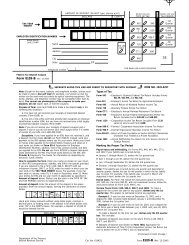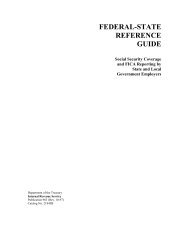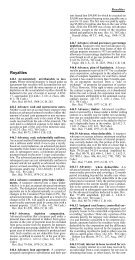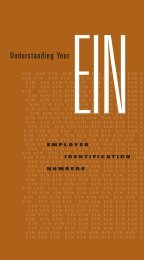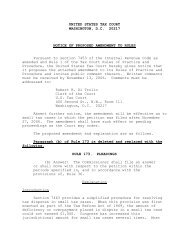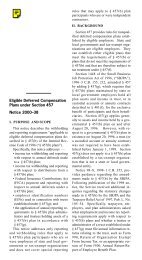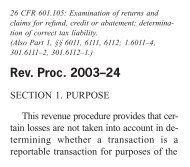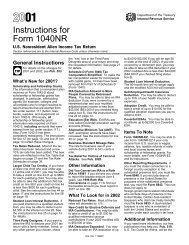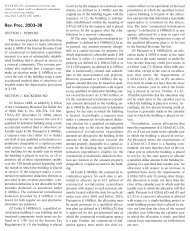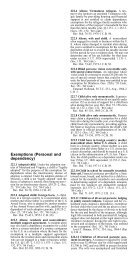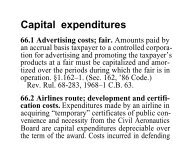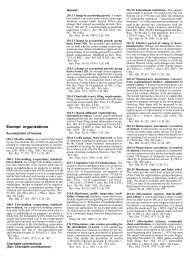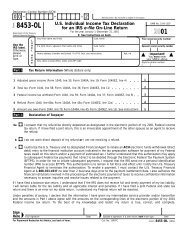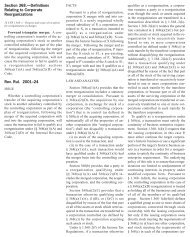Auto Dealerships - Audit Technique Guide - Uncle Fed's Tax*Board
Auto Dealerships - Audit Technique Guide - Uncle Fed's Tax*Board
Auto Dealerships - Audit Technique Guide - Uncle Fed's Tax*Board
Create successful ePaper yourself
Turn your PDF publications into a flip-book with our unique Google optimized e-Paper software.
cars and trucks, setting objectives and sales rules, purchasing and planning a two acre addition<br />
to the business facility, negotiating with the business’s suppliers and negotiating with<br />
Chevrolet for a heavy-duty truck franchise. He also had the responsibility for warranty<br />
problems and banking, including maintenance of proper cash flow, working capital and<br />
various other administrative matters.<br />
S & R Chevrolet Co., Inc. v. Birmingham, 93 F.Supp. 950 (N.D.IA1950). The Commissioner<br />
determined that the compensation paid to the shareholders and their sons was excessive and<br />
unreasonable. The finding of the Court was that the taxpayer had not sustained the burden of<br />
proof otherwise. Their decision was based on these factors: deductions for compensation to<br />
the officers of the corporation and their sons which included a percentage of profits as well as<br />
straight salary; the taxpayer realized a return of 6 percent on its invested capital, an inadequate<br />
return of capital considering the general business conditions prevailing in the automotive<br />
industry for the year in question; and the fact that the taxpayer did not pay dividends to its<br />
stockholders from 1941 to 1946, inclusive.<br />
Castle Ford, Inc. v. Commissioner, T.C. Memo. 1978-157, CCH 35,117(M). The court<br />
redetermined the amount of salary payments deductible as reasonable compensation that were<br />
paid to its officer-shareholder. The "* * * petitioner [had] failed to introduce any evidence<br />
(other than unsupported assertions * * *) as to [the] compensation paid by comparable<br />
business[es] to executives with responsibilities comparable to * * *" the petitioner’s. The fact<br />
that there was "* * * agreement between [the] petitioner and [the shareholder that]<br />
contemplated the possibility that a portion of the salary might be disallowed as unreasonable<br />
* * *" was an element that had some bearing on the decision made by the court.<br />
Van’s Chevrolet, Inc. v. Commissioner, T.C. Memo. 1967-172, CCH 28,583(M). The<br />
amount of reasonable compensation of the principal officer-owner of an automobile dealership<br />
was redetermined. In determining the amount that was reasonable, the court used its best<br />
judgment in comparing the amounts being paid in prior years for the services being rendered.<br />
Superior Motors, Inc. v. Commissioner, T.C. Memo. 1974-187, CCH 32,689(M). The Tax<br />
Court found that the auto agency’s success was due largely to the officer’s efforts and that it<br />
was the general practice in the car sales business to compensate the dealer-owner by both<br />
salary and a bonus based on a percentage of the net profits after salary and before taxes.<br />
However, the Court reduced the amount of reasonable compensation deductible by a<br />
corporation for an officer who was the sole owner of an auto agency who set his own salary.<br />
Osborne Motors, Inc. v. Commissioner, T.C. Memo. 1976-153, CCH 33,826(M) stated the<br />
compensation, in the combination of salary and bonuses, paid to officer-stockholders based<br />
upon a percentage of net profits were reasonable and deductible as business expenses.<br />
Childers & Venters Motors Inc. v. United States, 62-2 U.S.T.C. (CCH) Paragraph 9825<br />
(DC-KY 1962). The jury redetermined the amount of reasonable compensation to each of the<br />
top four officials of an automobile agency. The fixed reasonable compensation amounts<br />
ranged from $7,000 to $13,500.<br />
19-13



